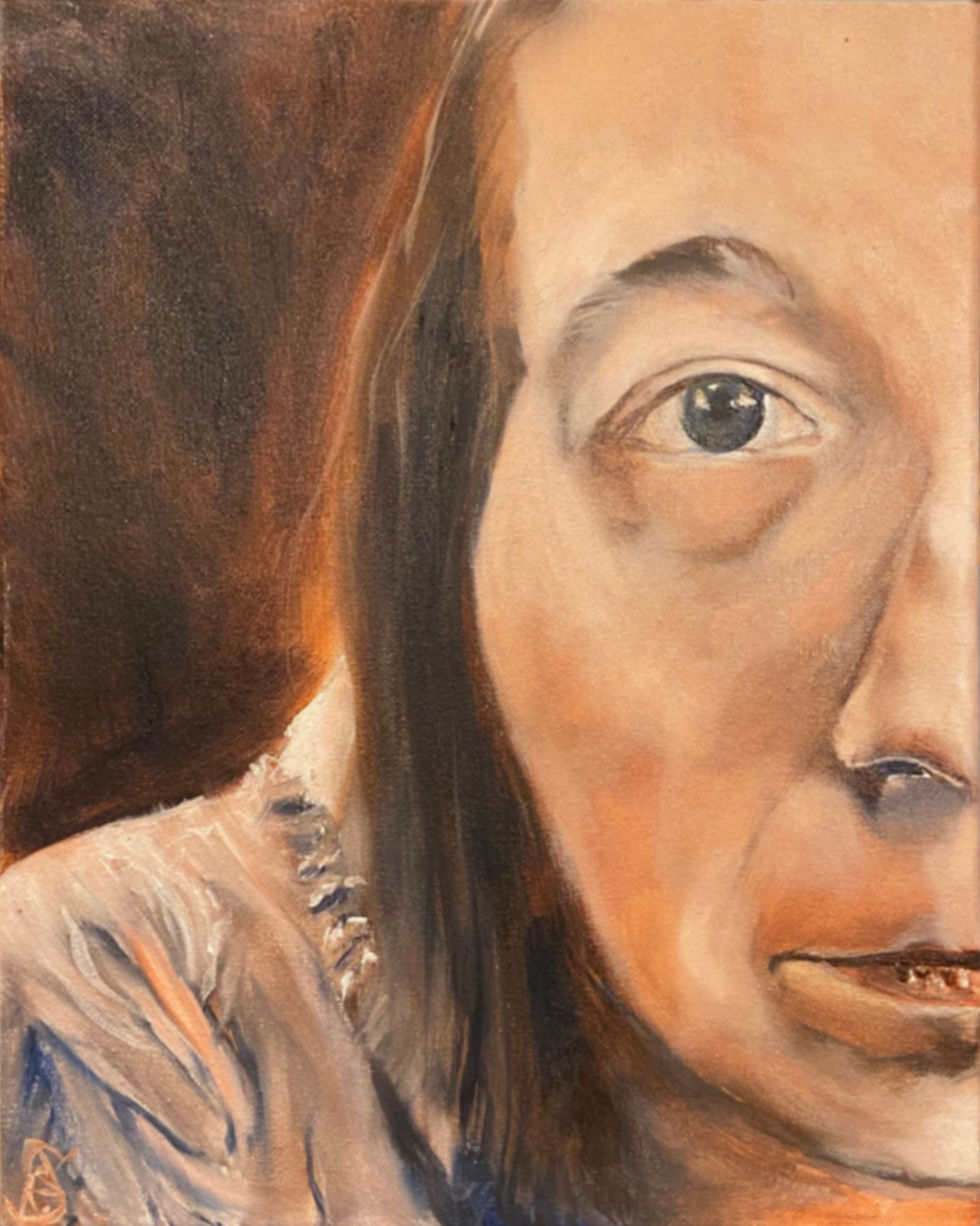Self Portrait: On the Nature of Suffering and Debilitating Illnesses
- annwritestoyou
- Sep 26, 2025
- 4 min read
Updated: Nov 3, 2025

There are many who walk in the ether of two worlds: one whose life looks like everyone else's, and one that creates unimaginable social awkwardness.
For months after surgery, I tried painting. I tried writing music—things I loved. I wrote piece after piece, and painting after painting, only to find that all I could export from my mind to my fingertips was inexplicable trash. I remarked to my husband, “All I see is trash. I feel like trash and I can’t paint!” He sweetly replied, “Then just paint trash.”
I considered it: paiting trash. Would it be colorful? Would it have variety of shapes and values? I thought about arranging garbage on my counter and positioning the light “just so.” Then, I had the thought of painting my own face—since I wasn’t exactly the model picture of loveliness.
I did feel like “trash,” after all. How could I capture a visceral sense of intense pain from just a portrait? And how could I do it without looking like Edvard Munch’s “The Scream?”
The challenge for any artist trying to convey an intense emotion is to not become schmaltzy, cloying, or mawkish. The truth is, you cannot actually make a person feel a certain way. You can prepare the way for them. But, they have to walk into it of their own volition, even unconsciously.

It was some of the most intense paint I have ever had in my life from soething called CRPS. I think perhaps somewhere inside us, we all want to be brave, courageous, show grit and toughness, and that is a good thing. But talking about pain openly as a dialogue is quite complex. On the one hand, we are comforted only when people know to bring us cheer and comfort. Yet we cannot illicit or force people to give us compassion and closeness. Any sort of unwanted emotional intimacy can catch someone unaware and bring about a feeling of manipulation and distrust. And thus, we are left with a challenging dilemma: be honest, be vulnerable in what we are experiencing and hope it is well received, and be ready for rejection, or don’t express it in the first place. You can’t have it any other way.

I think I found that this was one of the most difficult places in being so unwell much of my life. And, at various points, it has been more painful than any of the physical pains or losses that I have experienced. Ask any person who has a debilitating disease and they will tell you, they just want to be well. That is what they dream of.

Pain scales are somewhat helpful, maybe, when we have to communicate to doctors and anesthesiologists, and once in a while to loving friends. But, on the whole, the best advice to give yourself if you are suffering from a horrible illness, is to remember that those around you are tremendously finite. The same finitude that strikes you with blight on all your work, everyday living, even your attitude, also strikes those friends who forget to call, family members who just have no clue why you were crying again for days on end, and become callous to your pain or lost dreams.

They are human, just like you.
On the McGill pain scale, the condition I have is said to weigh in at a 42 out of 50, like amputating a toe or finger without any pain intervention. I find that Proverbs 14:10 gives me the wisdom I need during those painful encounters: “The heart knows its own grief.” In other words, try as we might to “mourn with those who mourn,” we must also remember with humility that we most likely really will not understand next time it is our turn to give compassion and comfort to someone suffering. “Compassion fatigue” is a real thing because we are human, and we must bear with others not only our own suffering but also the suffering others give us by not understanding with grace.

To some extent, This is a great part of accepting an illness with humility. Let your kids learn from you how to sit in awkwardness without feeling shame. Why should you feel shame because you are breaking some little form of etiquette—hiding the fact that you are trying to be present while in terrible suffering? Let them grow a little bit and don’t worry about it. There is just a rawness to suffering which is inevitably uncomfortable. I’m not saying we should force others into our suffering.
You only have two choices: create an insularly barrier where no one comes in (which usually promotes more naval gazing), or invite others in and let them deal with the relative discomfort however they will.
Remember the beauty of small routines but hold them loosely. Healing sometimes takes very long periods of time.
It took me a solid five months to get back into the routine of reading daily each morning. And, I often forgot what I read. Memorizing small verses, carrying it around the house everywhere I went helped ground me. It was like eating an elephant when my mind was still foggy.

Yours,
C.A.Stutzman


Comments